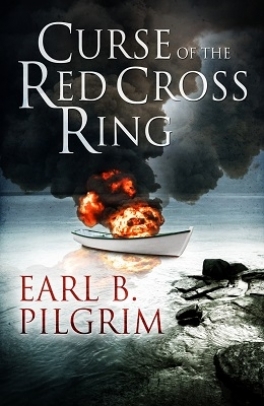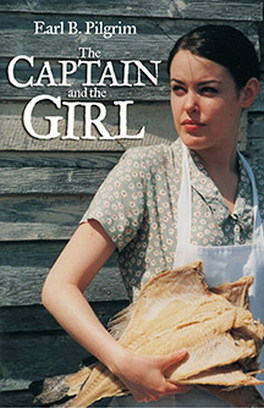Ghost of the Southern Cross

“Your life story didn’t begin with you. It reaches back to the beginning of time. You rose from the bodies of your ancestors. You’re the witness to their existence.” There is nothing more alive than the sea, nothing more deadly . . . Two childhood friends, Maggie and Elizabeth, are irrevocably joined by their love for one man lost on the Southern Cross, a brother to one and a groom-to-be of the other. Lives of families come into focus against the background of the island of Newfoundland, taking readers on a journey beginning more than a century ago and continuing to the 1970s. The lost vessel becomes a ghostly presence along the rugged shores of Newfoundland during a torturous wait for news, a lingering disruption in people’s lives that brings no relief. A loss comes for which the church offers solace, the graveyard none. Motivated by her family connection to the disappearance of the Southern Cross and its 174 sealers during the March 1914 voyage to the icefields, the author stitches together the lives of women and men cut from strong, enduring fabrics. Shortlisted for the 2015 Heritage and History Book Awards, Fiction Category
* * * * *
Mary Jane and William Maley lived in a peaked two-storey house up from the ocean and had a clear view of children playing on the beach. Caroline Maley, their sister-in-law, who had dropped in from next door for a visit, leaned on the window leaf and shook her head. She tutted above the sound of Mary Jane’s knitting needles clicking in and out of a half-knitted sweater. “I don’t know what to make of that poor streely child,” she said. “Never a needle put to the rips in her clothes or a loose button tightened.” Mary Jane rested the knitting on her knees and looked up at her sister-in-law. “Someone should take that child away from the stepmother who cares not a bit about her. There she is, then, with the tail of her dress between her teeth, and not a show of interest in anything on land while she dawdles in the water.” Rebecca, Mary Jane’s daughter, chided, “Now, Mamma, you and Aunt Caroline got better things to do than cast your eyes about the place like a man with a jigger seeing what he can haul in.” Mary Jane ignored her daughter and went on. “The father likely got blown into some cove, and no one there was eager to pass the news, least of all him if he’s been taken with a younger woman.” She murmured, “Out with the old, in with the new.” Rebecca shook her head. “But the child, he—” “Since when did a child keep a man in his place?” Caroline asked. Rebecca knew her aunt was thinking of how her neighbour’s husband had gone in his boat to the fishing grounds, how neither his hair nor hide was found, and she mourning herself all to pieces, sick in bed for days. Weeks later someone spotted him in a St. John’s public house with a young woman on his arm, and they laughing to kill themselves. Too handsome for Ida Snow to keep was whispered around the place. However, Rebecca knew that Maggie’s father was so struck on his little girl he would not abandon her. Sometimes Maggie came to the house with Elizabeth, Rebecca’s half-sister. Mary Jane smiled thinking of a spring day when the timid little girl had sidled into the house past William, who’d let out a grunt as she passed. “Have some cream on your bread, rich cream from the cow’s aftermilk,” Mary Jane had offered. Maggie shook her head. “It’s Lent, sure.” “No odds, me child, if it is, but it’s not,” Mary Jane said. “The Holy Season is long gone. No one told you, I s’pose.” She spread a generous helping over the bread. “Here! What goes into your body won’t hurt your soul. Enjoy what you can get.” Maggie swallowed in anticipation. “For your sake I’ll take some, but don’t tell Mam else I’ll have a knock in the side of the head. She thinks it’s still Lent.” Unaware of the eyes on her from different windows in the place, Maggie dropped the tail of her dress and ran along the beach, her small, bare feet pressing their shape into the sand. The tide rose and water gurgled its way into her small footprints, pulled sand again and again until the footprints were gone. She kept running until she reached a pebbly part of the beach where her father’s stage stood. Wind, sweeping off the water, caught her dress and flapped it like a ship’s sail. She stood silent and straight, staring out to sea. Her father had always come home. Her small, white teeth pressed into her lower lip until they drew blood. Still, she stayed, alone and shivering until the sun dipped behind the hill. Its orange afterglow spread across the sky promising a good sunny day, one sure to bring her father home tomorrow. She sidled over to a huge rock known as a logan stone. It lay lodged on its edge and balanced by nature. Maggie had heard her father say that it was like the island of Newfoundland, itself caught on a ledge. Unlike the island, a wisp of wind could dislodge the logan stone, but a man couldn’t move it. It was her place to lean when she grew tired of waiting. Finally, she slid down to a large, flat rock and sat on it, pulling her legs up under her dress. Then she folded into herself, her arms around her knees, her head resting there. She stayed motionless as if fastened like a barnacle. Her eyes had watered from the strain of looking out over the choppy waters. Now they were closed. “How long is your boat, Pappa?” she had asked him one day as he pushed strings of oakum into its seams with a flat blade and hammer. He finished what he was doing and went to get a mop and bucket to tar his new punt. He lifted his sleeve to wipe a sweaty forehead, and answered, “Long enough for two lops but not long enough for three.” She had screwed up her face. “Uh?” He explained, “She’s long enough to climb two waves. She dips her nose into the third lop, and spray goes right over her bow.” He grinned and added, “I can handle her.” Boats belonging to other children’s fathers had appeared on the shifting dark waters and had been collared and anchored long ago. Now Maggie opened her eyes and whispered, “Your boat must bring you home. You have to save me from her.” She straightened up, pulled her plait to the side of her mouth, and bit on it like a cat playing with its tail. She looked up at the little house, its windows darkening in the fading light, then turned back to the beach. Salty water teased the land with its playful roll, licking dull stones. Flecks of gold, silver, and sunrise pink emerged, showing stones fit for a queen’s necklace. She saw the flash of the evening light on a seagull’s wing as it soared above the ocean, and the silhouette of a boat in the distance, and she felt a rush of excitement. Could it be Pappa with a load of fish? The boat continued on across the bay away from Foxtrap. Still, she waited. You have to come![Nellie Strowbridge] can keep her characters moving through unfolding decades. Their challenges are daunting and their environments realistic and detailed. The reader is carried along by their trials and triumphs.-- The Telegram --
A good solid novel which many will enjoy.-- The Guardian --
This fictional account of the sinking of the Southern Cross, which took the lives of 174 sealers, will move hearts.-- Atlantic Books Today --
Strowbridge opens the doors to an emotional perspective of a tragic loss and the lasting impact it has on two women’s lives and futures.-- Tint of Ink --
Strowbridge weaves together family, cultural, and economic history for today’s readers. Her writing is an ode to the strength of human will and family ties, as well as to the irresistible call of the sea.-- Historical Novels Review --
Ghost of the Southern Cross is a fine book, kind of a family saga, and well worth barring yourself in and reading from cover to cover.-- The Advertiser --
This is a book to read and read again.-- Waterloo Region Record --
Shopping Cart
You have no items in your shopping cart
| Tax | Price | Qty | Total | |
|---|---|---|---|---|
| No items in the Cart. | ||||
| Sub Total | $0.00 |
|---|---|
| Shipping | $0.00 |
| HST (15%) | $0.00 |
| GST (5%) | $0.00 |
| Total | $0.00 |






















